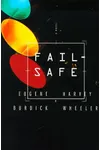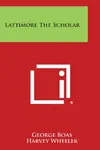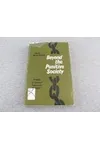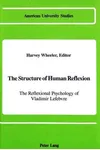Picture a Texas-born scholar who spun Cold War fears into a gripping tale that kept the world on edge—meet Harvey Wheeler! A political scientist with a novelist’s flair, Wheeler co-authored the bestselling 'Fail-Safe,' a story that captured the nuclear anxieties of the 1960s. But his legacy goes beyond fiction, as he championed the internet as a tool for democratic enlightenment, blending academia with visionary foresight.
Born in 1918, Wheeler’s life was a tapestry of intellectual curiosity and bold ideas. From his early days in Waco to his trailblazing work in online education, he left an indelible mark on political science and literature. Let’s dive into the story of this multifaceted thinker whose words still resonate today.
The Making of Harvey Wheeler
John Harvey Wheeler was born on October 17, 1918, in Waco, Texas, where his early years were shaped by a post-World War I America. After attending Subiaco Academy, he pursued higher education at Indiana University, earning both bachelor’s and master’s degrees, before clinching a PhD from Harvard in 1949. His time in the army during World War II profoundly influenced his worldview, fueling a lifelong concern about humanity’s future in a world of escalating conflicts. Wheeler’s academic journey took him to prestigious institutions like Harvard, Johns Hopkins, and Washington and Lee University, where he honed his expertise in political science.
Harvey Wheeler’s Unforgettable Stories
Wheeler’s most iconic work, 'Fail-Safe' (1962), co-authored with Eugene Burdick, emerged from a short story he penned in the 1950s. This Cold War thriller, serialized during the Cuban Missile Crisis, imagines a technical glitch triggering an accidental nuclear strike on Moscow. Its taut narrative and chilling realism captivated readers, inspiring a 1964 film with Henry Fonda and a 2000 TV adaptation. The novel’s exploration of human error in high-stakes systems remains hauntingly relevant.
Beyond fiction, Wheeler’s nonfiction works like 'Democracy in a Revolutionary Era' (1968) showcased his analytical prowess, dissecting political upheavals with clarity. His later books, 'The Virtual Library' (1987) and 'The Virtual Society' (1988), foresaw the internet’s potential to democratize knowledge. Wheeler’s writing style—sharp, interdisciplinary, and forward-thinking—blended scholarly rigor with an accessible voice, making complex ideas resonate with diverse audiences.
As a founding editor of the 'Journal of Social and Biological Structures,' Wheeler pushed political science into new realms, integrating insights from biology and semiotics. His work at the Center for the Study of Democratic Institutions in Santa Barbara, where he spent 15 years, cemented his reputation as a thinker unafraid to challenge conventional boundaries.
Why Harvey Wheeler Matters
Harvey Wheeler’s impact lies in his ability to bridge fiction and scholarship, warning of technological perils while advocating for progress. 'Fail-Safe' not only shaped Cold War literature but also sparked discussions about nuclear policy and human fallibility. His early embrace of the internet as a democratizing force was prophetic, influencing online education long before it became mainstream. Wheeler’s interdisciplinary approach continues to inspire political scientists and writers to think beyond silos.
Even after his passing in 2004, Wheeler’s legacy endures in his call for informed, engaged societies. His work reminds us that storytelling and scholarship can together shape a better future, urging readers to question systems and embrace innovation.
- Born: October 17, 1918, Waco, Texas
- Key Works: 'Fail-Safe' (1962), 'Democracy in a Revolutionary Era' (1968), 'The Virtual Library' (1987)
- Notable Role: Fellow at the Center for the Study of Democratic Institutions (1960–1975)
- Died: September 6, 2004, Carpinteria, California
Snag a copy of 'Fail-Safe' and dive into Harvey Wheeler’s thrilling blend of suspense and insight—perfect for anyone curious about the crossroads of technology and humanity!





